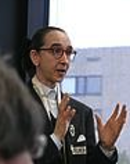Group 3: Reflective Practices in Adult and Lifelong Learning

Reflective Practices in Adult and Lifelong Learning
Prof. Dr. Vanna Boffo
The main focus of the comparative group work is the employability of young adults, at the level of higher education, in the social economy sector (caring services, from early childhood care to the adult learning centre), and, above all, in the strategic sector for adult education and learning. The framework is the analysis of past, present and future member state policies regarding the professionalization of the adult educator and the profile of a professional graduating from university with a master’s or doctoral degree in adult education. Students will develop an analytical approach on trends and issuesin the educational research field both at a mirco, meso and macro level enabling them to compare different strategies, opporunities and solutions, depending on different perspectives.
In a cooperative learning setup, master’s and PhD students will join a discussion group focused on this theme, and they will acquire collective problem-solving, team-building, relationship and communication skills by striving for a common goal. Moreover, they will be highly involved in a very valuable, engaging and productive learning experience. A coordinator will be engaged in the monitoring and supervision of the learning process in order to guarantee and improve the quality of the process. The coordinator will moreover promote and increase the level of efficiency of the group work.
During the comparative group work, we will focus on the following aspects:
1. What is the historical national background of employability in the social economy field (i.e. the social care services for adults and children, adult educators)?
2. What role can national and international policies play in putting the occupational and entrepreneurial potential of the social economy into reality?
3. Are specific programmes and measures developed at an institutional level to forster youth employability at a national level and at a sectoral level (i.e. that of the social economy)?
4. What is the role of social economy workers in your country? Is it possible to make a comparison with the other EU member states?
5. According to CEDEFOP, European Commission, ILO and OECD publications, which skills characerize the professional profiles of the adult educator and the care service officer for adults and children in your country?


